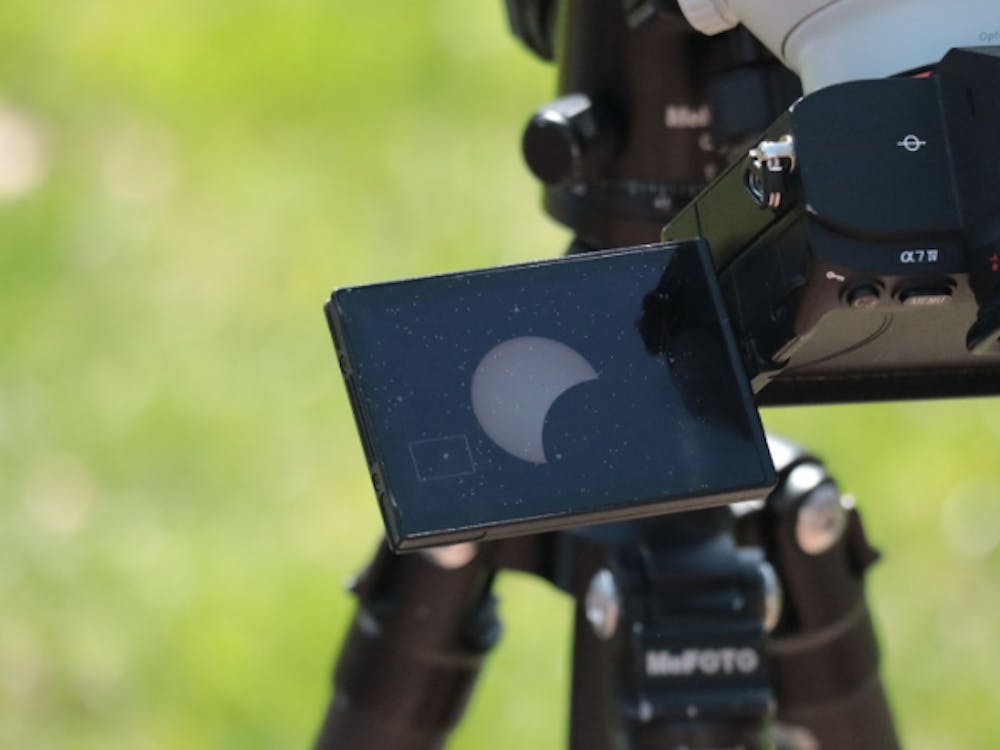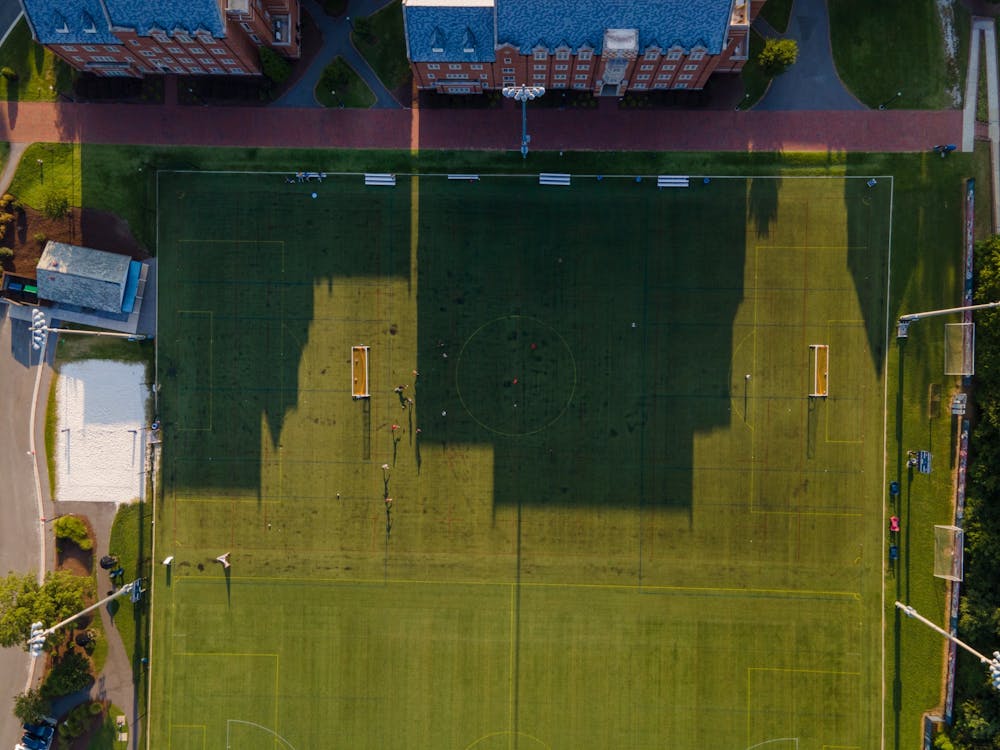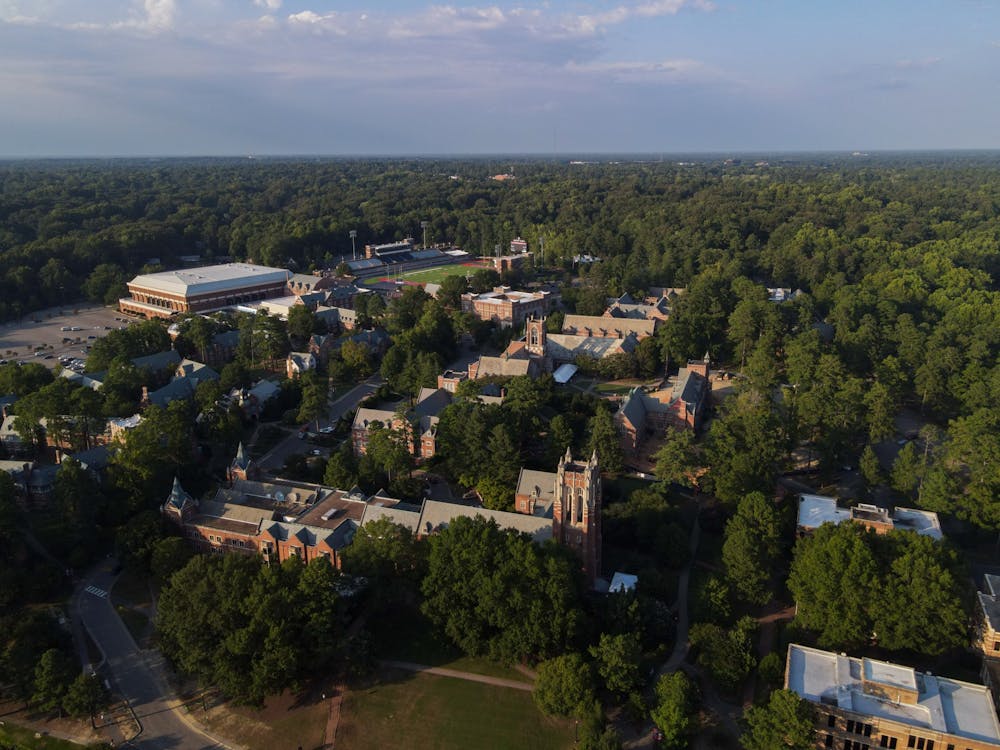A $25,000 National Institute for Technology in Liberal Education (NITLE) grant and the digital scholarship lab will help history students and others develop new pedagogic digital teaching tools.
"I have been involved in the Digital Humanities since 1991 - before the Web existed," said President Edward Ayers, who recently became a member of NITLE's advisory board. "I always believed the Internet is the most significant source of social change of our time. If educators don't figure out how to use the Internet, they're missing out."
NITLE provides a forum for liberal arts colleges and universities across the United States in which the schools can share strategies for incorporating technology into the classroom. Schools can also take part in conferences, online events and digital technology courses as well as apply for grants to develop their own educational tools.
On this campus, the digital scholarship lab works to develop new ways of combining technology, research and teaching. Most projects in the lab deal with the creation and maintenance of digital history projects, though Ayers said he hoped the lab would someday serve the whole university.
Ayers's original digital history project, which he started in 1993 in conjunction with the University of Virginia, was called "The Valley of the Shadow." It is an archive chronicling the existence of a Northern and southern community during the Civil War. Thousands of newspaper clippings, censuses, personal diary entries, letters and even church records were organized in the project.
Ayers said he wanted to show the full lives of the people who lived in these areas.
When Ayers came to the University of Richmond, he and others worked on new historical projects. They partnered with Google to set up "Voting America," which showed how every county in the United States voted in presidential elections from 1840 to 2004. "Redlining Richmond" shows how people lived in Richmond neighborhoods during the 1930s and incorporates information ranging from the terrain to the income levels of specific neighborhoods.
One of the digital scholarship lab's most ambitious projects is called the "History Engine," which exists because of a $25,000 NITLE grant awarded in 2008. It is a collection of historical articles, called episodes, that extend into all areas of U.S. history. Ayers and Robert K. Nelson, director of the digital scholarship lab, said this was a primarily student-oriented program that depended on experimentation by and submissions from students.
"Wouldn't it be cool if your essay for class didn't just disappear into the ether as soon as you turned it in but was put into a large project?" Ayers said. "It means your research matters like it might not have otherwise."
Nelson said there were 2,500 episodes available in the archive already. He said he hoped the number would grow to more than 80,000 in the years to come.
"Students are amassing information about history," Nelson said. "It could be a great repository where anyone can look at a map or an article.
"We also want to have a search engine for keywords so you can see all of the episodes relating to the major issue you're interested in." That engine is called "Text mapping" and it determines how often a particular topic appears in thousands of archival documents from a specific time.
Enjoy what you're reading?
Signup for our newsletter
Ayer's long-term goal with the "History Engine" is to develop an American History digital atlas. This tool would allow students, faculty and scholars to see every scrap of information from our past organized onto an interactive digital map. The map would depend considerably on student experimentation.
"I thought 18-year-olds would know [better digital tools] than a fossil like me," Ayers said.
This project, along with the others already being used at the University of Richmond, will reach wide audiences, Nelson said. "Redlining Richmond," which is local, can reach the general public and fits in with the university's dedication to civic engagement.
Scholars, Nelson said, would be able to use the databases created in the digital scholarship lab to explore new methodologies while students could contribute to them and use them for research. Nelson said he also hoped faculty would take advantage of the lab.
"I want the digital scholarship lab to be a resource where we can collaborate with faculty with digital humanities projects," Nelson said. "Certain things don't translate from one medium to another. You might be able to do something as a digital project that you couldn't do in a book or essay."
Contact staff writer Jordan Trippeer at jordan.trippeer@richmond.edu
Support independent student media
You can make a tax-deductible donation by clicking the button below, which takes you to our secure PayPal account. The page is set up to receive contributions in whatever amount you designate. We look forward to using the money we raise to further our mission of providing honest and accurate information to students, faculty, staff, alumni and others in the general public.
Donate Now


